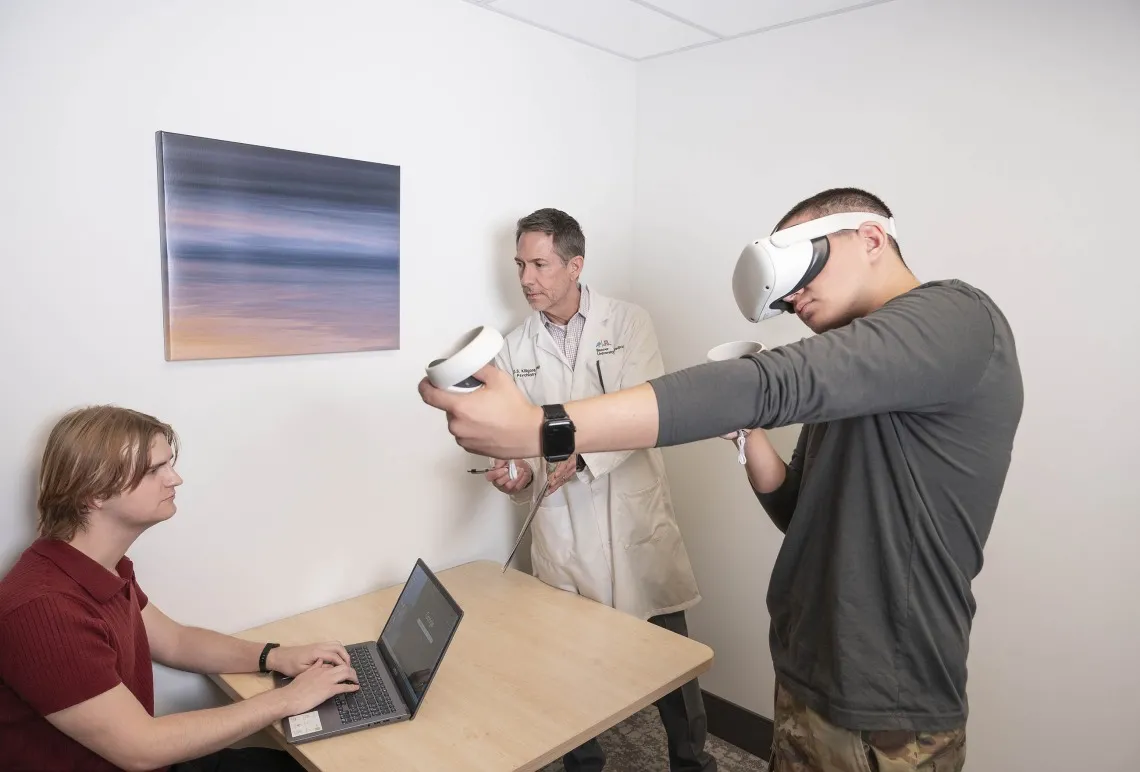Applying VR and AI to find a faster way to test for TBI

"Revolutionizing TBI Diagnosis: The VRMONA Initiative at University of Arizona Health Sciences"
In a groundbreaking move by the University of Arizona Health Sciences, Dr. William D.S. Killgore and his team are pioneering the integration of virtual reality (VR) and artificial intelligence (AI) to advance the diagnosis and assessment of traumatic brain injuries (TBIs) among military personnel. The project, named the Virtual Reality Military Operational Neuropsychological Assessment (VRMONA), aims to transform TBI diagnosis through a combat-style "game" that assesses neurocognitive domains affected by mild TBIs, such as attention, processing speed, memory, and executive function.
Funded by a $1.5 million Department of Defense grant, VRMONA leverages a VR headset, handheld controllers, and deep neural network learning to evaluate soldiers swiftly and accurately in the field. This innovative approach seeks to condense traditional, hours-long neuropsychological assessments into a 10-20 minute session, making it an invaluable tool for small military teams in remote locations.
Beyond its military application, Dr. Killgore envisions adapting VRMONA for civilian use, potentially aiding in the diagnosis of a range of neurological disorders. The initiative represents a significant leap forward in both military and civilian health sciences, offering a glimpse into the future of medical diagnostics powered by VR and AI technology.
